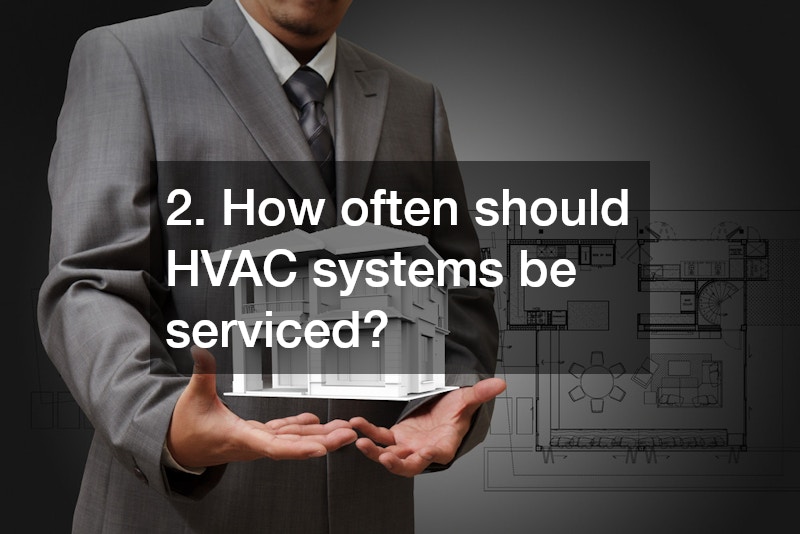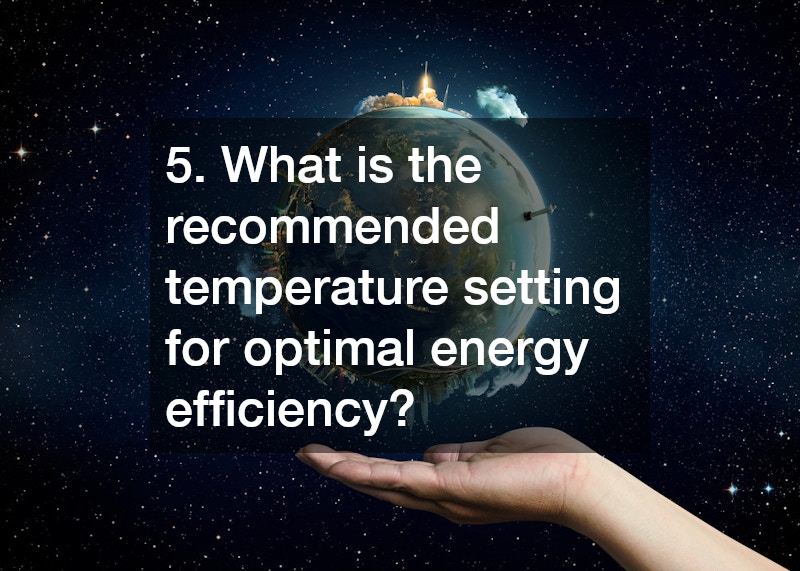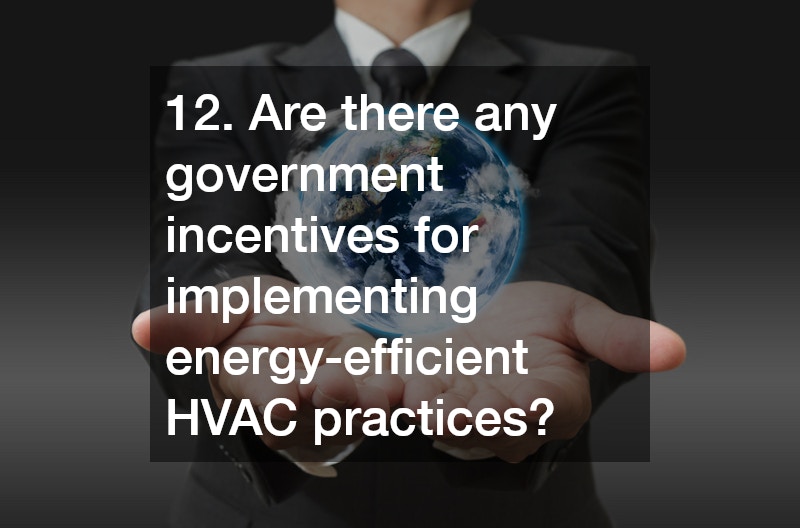Implementing HVAC best practices is crucial for maintaining a comfortable and efficient living or working environment. Whether you are a homeowner or a business owner, ensuring that your heating, ventilation, and air conditioning systems are operating at their best is essential for indoor comfort and energy savings.
1. Why are HVAC best practices important?
Proper HVAC maintenance and best practices are essential for ensuring good indoor air quality. HVAC systems can accumulate dust, mold, and other contaminants over time, which can be circulated throughout your space if not properly managed. Regular maintenance and cleaning can help improve air quality and reduce allergens in the air.
Moreover, HVAC best practices are vital for increasing energy efficiency. A well-maintained system operates more efficiently, resulting in lower energy bills and reduced energy consumption. Implementing best practices such as regular system checks and proper insulation can help optimize energy efficiency in your residential or commercial space.

2. How often should HVAC systems be serviced?
Regular maintenance checks are recommended for HVAC systems to ensure optimal performance and longevity. Ideally, HVAC systems should be serviced twice a year, once before the heating season and once before the cooling season. This can help identify and address any potential issues before they escalate.
In addition to regular maintenance checks, seasonal inspections are also important for HVAC systems. Seasonal inspections can help identify any issues that may have developed during periods of heavy use, such as during the summer or winter months. Addressing these issues promptly can prevent more significant problems down the line.
3. What are some common HVAC maintenance tasks?
One essential HVAC maintenance task is changing air filters regularly. Dirty air filters can restrict airflow and cause your HVAC system to work harder, leading to increased energy consumption and potential system malfunctions. By changing air filters every 1 to 3 months, you can improve system efficiency and indoor air quality.
Cleaning air ducts is another crucial HVAC maintenance task that should not be overlooked. Over time, dust, debris, and mold can accumulate in the ductwork, affecting air quality and system performance. Professional duct cleaning services can help remove these contaminants and improve the overall efficiency of your HVAC system.
4. How can I improve the energy efficiency of my HVAC system?
One effective way to improve the energy efficiency of your HVAC system is by installing a programmable thermostat. Programmable thermostats allow you to set temperature schedules based on your daily routine, reducing energy consumption when heating or cooling is not needed. This can result in substantial energy savings over time.
Sealing air leaks in your home or commercial space is another important step in enhancing energy efficiency. Leaky windows, doors, and ductwork can contribute to energy waste by allowing conditioned air to escape. Properly sealing these leaks can help maintain a consistent indoor temperature and reduce the workload on your HVAC system.

5. What is the recommended temperature setting for optimal energy efficiency?
During the summer months, setting your thermostat to around 78 degrees Fahrenheit can help optimize energy efficiency while maintaining comfort. If you are away from home or sleeping, consider raising the temperature to reduce energy consumption. Using ceiling fans in conjunction with your air conditioning can also help circulate cool air more effectively.
In the winter, a recommended heating setting is around 68 degrees Fahrenheit during the day and lower at night or when you are away. Layering clothing and using additional blankets can help you stay warm without relying solely on your HVAC system. Proper insulation and sealing drafts can also help retain heat and improve energy efficiency.
6. How can I ensure proper air circulation in my space?
Strategic furniture placement can play a significant role in promoting proper air circulation in your home or office. Avoid blocking air vents or returns with furniture or other obstacles, as this can impede the flow of conditioned air. By arranging furniture to allow for unobstructed airflow, you can help maintain consistent temperatures throughout your space.
Using ceiling fans is another effective way to improve air circulation and comfort in your residential or commercial space. Ceiling fans can help distribute air more evenly, reduce hot or cold spots, and enhance the efficiency of your HVAC system. Running ceiling fans in conjunction with your heating or cooling system can help you achieve optimal air circulation and comfort.
7. What are some signs that my HVAC system needs repair?
Strange noises coming from your HVAC system, such as banging, rattling, or whistling sounds, can indicate potential issues that require repair. These noises may be due to loose components, worn-out parts, or other mechanical problems that need attention. Ignoring these noises can lead to more significant issues and costly repairs down the line.
Inconsistent temperature throughout your space is another common indicator that your HVAC system may need repair. If certain rooms are consistently too hot or too cold or if you notice fluctuations in temperature, there may be issues with your system’s airflow or distribution. Consulting with an HVAC technician can help identify and address these issues promptly.
8. How can I prolong the lifespan of my HVAC system?
Regular inspections and maintenance are key to prolonging the lifespan of your HVAC system. By scheduling routine tune-ups with a qualified HVAC technician, you can address minor issues before they escalate and ensure that your system operates at peak efficiency. Professional maintenance can help extend the lifespan of your HVAC equipment and prevent premature failure.
In addition to regular inspections, changing air filters regularly and keeping outdoor units free of debris can help improve the performance and longevity of your HVAC system. Clogged filters and obstructed airflow can strain your system and lead to costly repairs or replacements. By practicing proper maintenance and care, you can maximize the lifespan of your heating and cooling equipment.

9. How can I reduce indoor humidity levels?
Proper ventilation is essential for reducing indoor humidity levels and maintaining a comfortable indoor environment. Ventilation systems such as exhaust fans, air vents, and dehumidifiers can help remove excess moisture from the air and prevent mold or mildew growth. Good ventilation practices can help control humidity levels and promote a healthier indoor space.
Using a dehumidifier is an effective way to reduce indoor humidity levels and improve indoor air quality. Dehumidifiers remove excess moisture from the air, reducing the risk of mold, mildew, and musty odors. By using a dehumidifier in areas prone to high humidity, you can create a more comfortable and healthy indoor environment.
10. What are the benefits of upgrading to a more energy-efficient HVAC system?
Upgrading to a more energy-efficient HVAC system can result in lower utility bills and significant energy savings over time. Energy-efficient systems are designed to operate more efficiently, reducing energy consumption and costs. By investing in an energy-efficient HVAC system, you can enjoy long-term savings and improved comfort in your residential or commercial space.
By upgrading to a more energy-efficient HVAC system, you can reap the benefits of lower energy bills, reduced environmental impact, and enhanced comfort in your space. Consulting with HVAC companies or local HVAC service providers can help you explore energy-efficient options and choose the best system for your needs and budget.
11. How can I optimize the performance of my HVAC system in extreme weather conditions?
Upgrading insulation in your home or commercial space is essential for optimizing HVAC performance in extreme weather conditions. Proper insulation helps retain conditioned air, prevent heat loss or gain, and reduce the workload on your heating and cooling systems. By investing in quality insulation, you can enhance indoor comfort and energy efficiency year-round without worrying about heating repair.
Installing zoning systems is another effective way to optimize HVAC performance in extreme weather conditions. Zoning systems allow you to control temperature settings in different areas of your space independently, ensuring personalized comfort and energy savings. By zoning your HVAC system, you can tailor heating and cooling to specific zones based on usage and preferences.

12. Are there any government incentives for implementing energy-efficient HVAC practices?
Government incentives such as tax credits and rebates are available for homeowners and businesses that implement energy-efficient HVAC practices. Tax credits can help offset the cost of purchasing and installing energy-efficient heating and cooling equipment, making it more affordable to upgrade. Rebates offer cash incentives for energy-saving upgrades, encouraging individuals and businesses to adopt environmentally friendly practices.
By taking advantage of government incentives for energy-efficient HVAC practices, you can lower your upfront costs and improve your return on investment. These incentives can make it more financially feasible to upgrade to energy-efficient systems, benefiting both your wallet and the environment. Consult with your local HVAC contractor or energy provider to learn more about available incentives in your area.
Exploring government incentives and rebates for energy-efficient HVAC practices can help you make informed decisions and maximize savings on your heating and cooling upgrades. By leveraging available incentives, you can enjoy the benefits of energy-efficient equipment while supporting sustainability and reducing your carbon footprint.
13. What role does proper ventilation play in HVAC best practices?
Proper ventilation is essential for maintaining good indoor air quality, controlling humidity levels, and removing indoor pollutants. Well-ventilated spaces promote healthier indoor environments by allowing fresh air to circulate and reducing the concentration of indoor pollutants. Ventilation systems help exchange stale air with fresh outdoor air, creating a more comfortable and healthful indoor setting.
Removing indoor pollutants such as dust, pollen, and volatile organic compounds (VOCs) is another critical function of proper ventilation. Ventilation systems can help filter out airborne contaminants and improve indoor air quality, reducing the risk of respiratory issues and allergies. By ensuring adequate ventilation in your space, you can create a cleaner, healthier environment for occupants.
14. How can I ensure even temperature distribution throughout my space?
Balancing air registers is essential for ensuring even temperature distribution throughout your home or office. Adjusting air registers to control air flow can help balance temperatures in different areas, preventing hot or cold spots. By directing airflow strategically, you can achieve consistent comfort and efficiency throughout your space.
Checking for obstructions near air registers or vents is another crucial step in ensuring even temperature distribution. Blocked or obstructed vents can disrupt the flow of conditioned air, leading to uneven temperatures and reduced system efficiency. By keeping air registers clear and unobstructed, you can optimize air circulation and comfort in your space.
15. What are the benefits of hiring a professional HVAC technician for maintenance?
One of the main benefits of hiring a professional HVAC technician for maintenance is their expertise and experience in identifying and addressing HVAC issues. HVAC technicians have the training and knowledge to diagnose problems, perform repairs, and optimize system performance effectively. By enlisting their expertise, you can ensure that your HVAC system operates efficiently and reliably.
16. How can I stay informed about the latest HVAC best practices and technologies?
Industry publications and online resources are valuable sources of information for staying informed about the latest HVAC best practices and technologies. Subscribing to industry magazines, websites, and newsletters can help you stay up-to-date on trends, innovations, and best practices in the HVAC industry. By regularly reading industry publications, you can expand your knowledge and make informed decisions about your HVAC system.
By actively engaging with industry publications, websites, workshops, and seminars, you can stay informed about the latest heating equipment, HVAC best practices, and technologies. Keeping up-to-date with industry trends and innovations can help you make informed decisions about your heating and cooling systems and optimize your indoor comfort and energy efficiency.
In conclusion, implementing HVAC best practices is essential for maintaining a comfortable, efficient, and healthy indoor environment in your residential or commercial space. By following recommended maintenance tasks from an air conditioning and heating company, improving energy efficiency, and staying informed about the latest HVAC technologies, you can optimize the performance and longevity of your HVAC system.
Whether you need HVAC repair, furnace repair, or routine maintenance, partnering with a reputable HVAC contractor or local HVAC service provider can help you keep your heating and cooling systems in top condition. By prioritizing HVAC best practices and investing in professional services, you can enjoy reliable comfort, energy savings, and peace of mind year-round.
Remember to schedule regular maintenance checks, implement energy-saving strategies, and stay informed about the latest HVAC developments to ensure that your HVAC system operates at its best. By incorporating HVAC best practices into your daily routine, you can create a comfortable, energy-efficient indoor environment for yourself, your family, or your employees.


